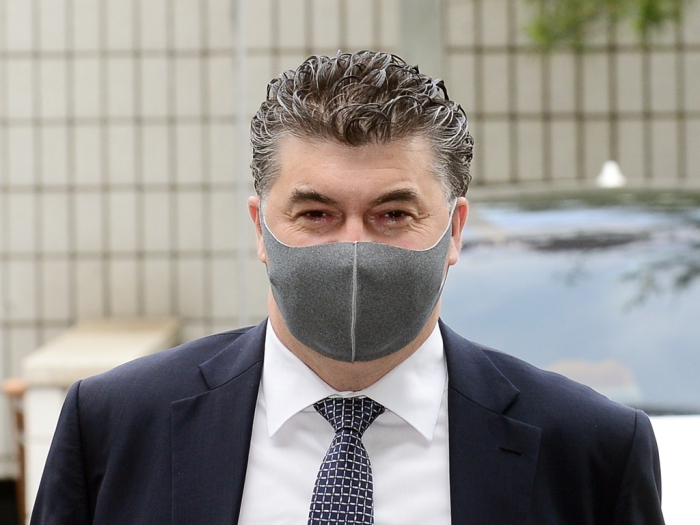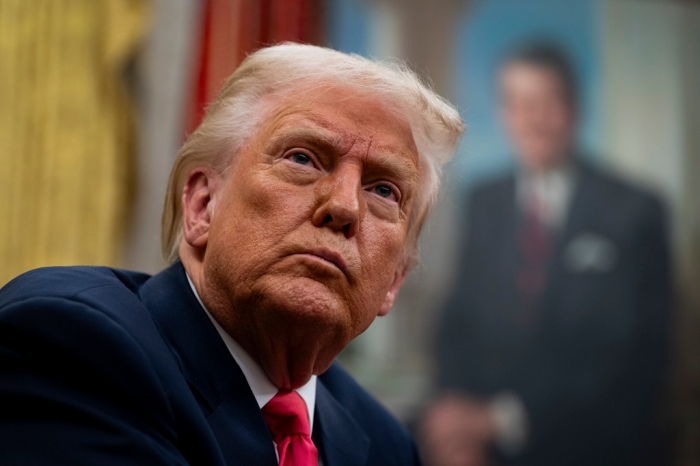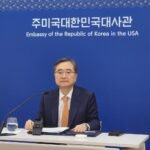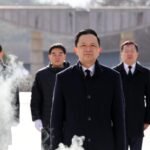
The US Chamber of Commerce, the country’s largest lobbying group, told Washington that South Korea’s penalties on businessmen are one of the non-tariff barriers as the Trump Administration is set to impose reciprocal tariffs on April 2.
In a letter to the US Trade Representative (USTR) on March 11, the chamber also said South Korea’s rules and regulations are often introduced without sufficient prior notice, which is unfair trade practice as it is more likely to hurt foreign companies than local firms.
“Chief executives of US companies have often been subjected by Korean authorities to criminal prosecution, exit bans, and the threat of prison or deportation for regulatory infractions that range from employment law violations to misfiling of customs declarations,” the chamber said.
“In other advanced economies, these violations would be exclusively civil in nature and target the corporation rather than an individual.”
The USTR collects opinions from various parties over unfair practices of trading partners and necessary measures before Washington imposes reciprocal tariffs.
US President Donald Trump said on Friday that his reciprocal tariff plan will have “flexibility,” although he seemed to oppose the idea of making exceptions for the forthcoming duties.

TO AFFECT FDI IN KOREA
South Korea’s punishments on businessmen are often driven by political motives and severely damage the country’s image as an attractive destination for foreign direct investment (FDI), the chamber said.
Such legal actions also hinder US companies’ ability to attract top global talent to take leadership positions there, the US business association advocacy group said.
“Korea should refrain from excessive or unfair criminal punishment, including arbitrary exit bans of executives for remote administrative transgressions, and allow sufficient time for full deliberation with stakeholders, including the US business community,” it recommended.
A South Korean court sentenced Kaher Kazem, a former CEO of GM Korea Co., to a suspended prison term in January 2023 on charges of illegally hiring about 1,700 manufacturing workers on secondment.
REGULATIONS
The chamber said South Korea’s regulatory environment is also a non-tariff barrier.
“In Korea, US companies face an opaque regulatory framework that at times fails to measure up to internationally recognized good regulatory practices,” the lobbying group said.
“New rules and regulations are often introduced on short notice, and they are frequently crafted behind the scenes and consequently more likely to benefit domestic interests at the expense of foreign competitors.”
The chamber recommended South Korea should engage in regular public-private dialogue and provide sufficient time for industry to prepare for new regulations.
Other challenges include the Korean government’s intervention in business affairs and the Korea Fair Trade Commission (KFTC)’s arbitrary investigations, rulings, and actions, which often disproportionately target US companies, the chamber said.
The body also said South Korea’s pharmaceutical and medical device pricing and reimbursement policies continue to undervalue U.S. intellectual property (IP) and innovation and fail to “appropriately recognize the value of the patented pharmaceutical product” in violation of the free trade agreement (FTA) between the two countries.
TO RETRACT ONLINE PLATFORM REGULATION PROPOSALS
Separately, another US industry group asked the USTR to urge South Korea to withdraw its digital platform regulatory proposals.
The Coalition of Services Industries (CSI) said the proposal poses an “unnecessary irritant” to the two countries’ relationship and could breach the bilateral FTA.
In 2023, South Korea’s anti-trust watchdog proposed enacting an act aimed at tightening oversight over market-dominant online platform businesses to ensure fair competition. After pushback from US stakeholders and others, it announced a new proposal in September to revise the existing key anti-trust law instead of seeking new legislation.
“Concerningly, the new proposal still retains problematic elements from the ex-ante proposal, such as disproportionately targeting U.S. companies and narrowly focusing on online services that U.S. firms provide in Korea,” the CSI said.
“Korea’s pursuit of discriminatory legislation against US firms is an unnecessary irritant to the longstanding bilateral relationship and a potential KORUS violation that creates an unlevel playing field for US firms competing against rapidly growing Chinese e-commerce companies,” it said. KORUS is short for the South Korea-U.S. free trade agreement.
The coalition lashed out at the KFTC, accusing the regulator of unfairly treating US firms.
“The KFTC continues to unfairly target US companies with unprecedented fines, office raids, threats of prosecution, and attempts to harass American companies with criminal allegations and erroneous investigations,” it said.
By Dong-Hyun Kim
3code@hankyung.com
Jongwoo Cheon edited this article.















